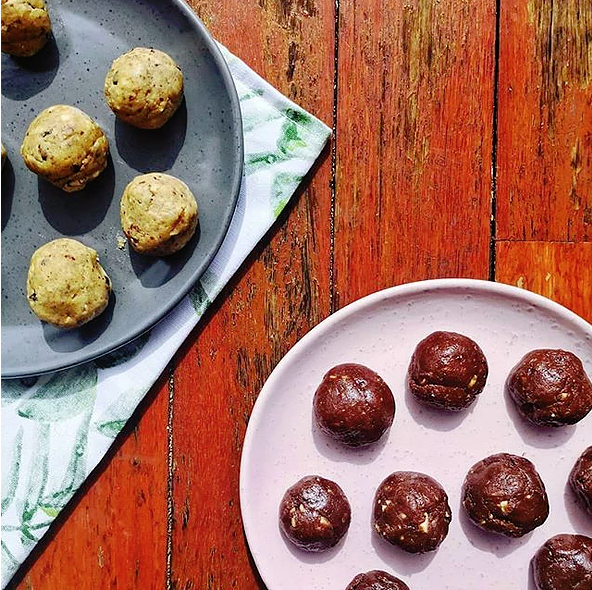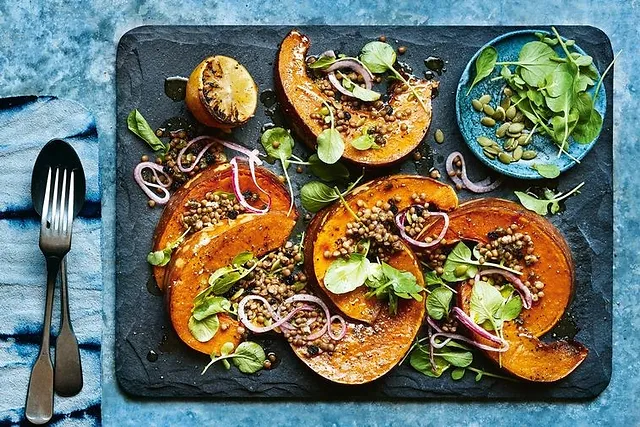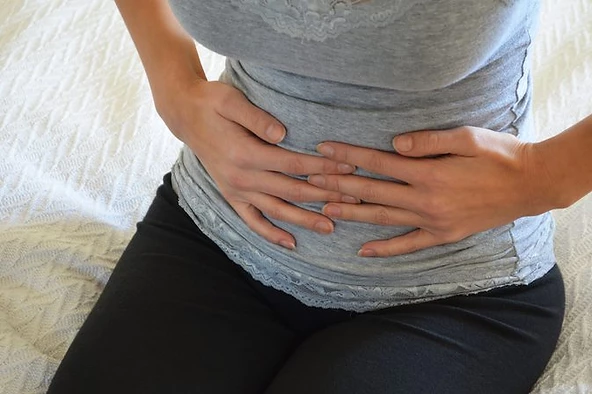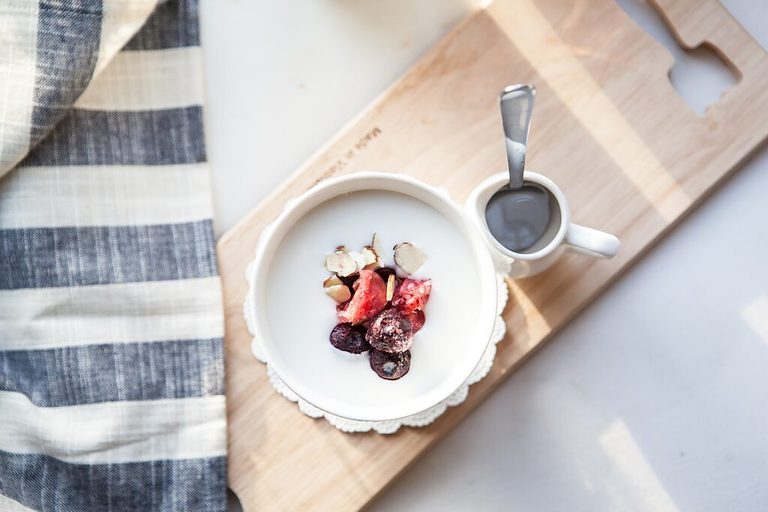Endometriosis is a chronic inflammatory condition affecting around 1 in 9 women of reproductive age, where the tissue similar to that lining the uterus (the endometrium) goes rogue and grows outside of it too (Olsen, 2020). It can lead to symptoms including pelvic pain, pain during periods and intercourse, heavy periods, fatigue, pain with bowel movements and intense cramping (Olsen, 2020).
So basically, it can be quite painful and debilitating for some women, especially if left unchecked.
Read more about supplements to help manage symptoms of endo here.
There has been much discussion around the best diet to eat for managing endometriosis and its symptoms. Considering it involves both hormones (particularly estrogen) and inflammatory processes in the body, many people recommend eating a gluten-free diet, due to the potential inflammatory and hormone-affecting properties of gluten (Olsen, 2020).
Gluten refers to the proteins contained in wheat, barley and rye. For people with coeliac disease, gluten can trigger an immune response damaging the lining of the small intestine and can contribute to a range of serious health problems if left unmanaged (Strawbridge, 2013). However, in non-coeliacs, gluten is perfectly fine to incorporate into a healthy diet (Strawbridge, 2013).
So is there any research to support a gluten-free diet for endometriosis?
There have actually been very few studies around the effectiveness of a gluten-free diet for managing symptoms of endometriosis! One study in 2012 involved 207 women with endometriosis following a gluten-free diet for 12 months (Marziali et. al, 2012).
So what did they find?
1. Reduced pain

A gluten-free diet may help to reduce pain and discomfort for women with endo (Marziali et. al, 2012). The same study saw 75% of women experience significantly less pain after cutting gluten from their diet for a year (Marziali et. al, 2012). And not one woman reported increased pain (Marziali et. al, 2012) – win win!
Women with endo in another UK study saw a 50% reduction in pain after 3 months of no gluten (Shepperson-Mills, 2011).
This mostly looked like reduced pelvic pain, pain during intercourse and period pain (Marziali et. al, 2012).
2. Improved mental health

Thanks to reduced pain and less inflammation, the women mostly said their quality of life had improved from limiting gluten in their diet, leading to improved mental health, too (Marziali et. al, 2012)! A happy body leads to a happy mind!
In fact, the general health perception, social functioning and vitality scores of the women all improved after a year of following a gluten-free diet (Marziali et. al, 2012).
3. Carry on effects…

Another study required women with endo to reduce the amount of gluten and dairy in their diets, and increase the fruit, vegetable and whole foods they were eating (Karlsson et. al, 2020).
The women who followed this diet experienced less stress, and were able to make other lifestyle changes like exercising more and improving their work situation (Karlsson et. al, 2020). They reported a general improvement in health, less swelling and gas in their stomachs, improved sleep, greater energy levels, and felt happier and more stable, and overall healthier (Karlsson et. al, 2020) than before.
While the women who didn’t stick to the diet saw more negative symptoms from their endometriosis (Karlsson et. al, 2020).
We must remember though that it’s impossible to be sure of whether these benefits were caused from the reduction in gluten, or a combination of all the other lifestyle changes that were made.
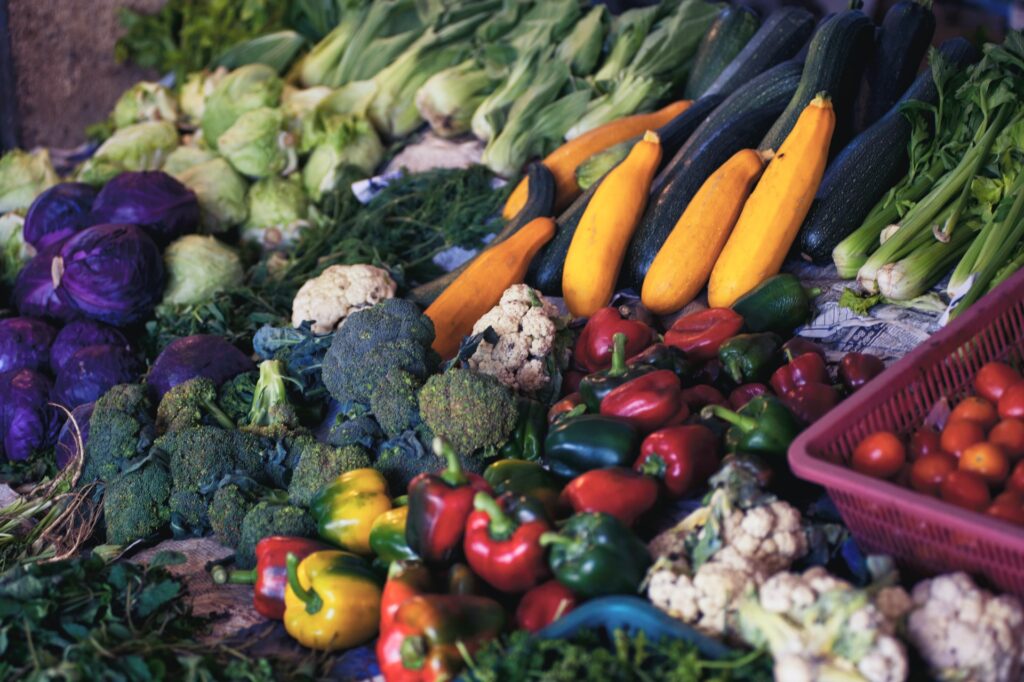
Overall, it seems that a gluten-free diet has potential for reducing painful symptoms and side effects for women with endometriosis (Marziali et. al, 2012)! We don’t yet know exactly why this is the case – it could be down to the fact that a gluten-free diet contains fewer high FODMAP foods, particularly fructans from wheat. Considering FODMAPs can lead to negative bowel symptoms and abdominal or pelvic pain for women with endo. Or it could be owing to women simply eating healthier when consciously trying to reduce gluten!
The main thing to remember is, when you follow a gluten-free diet, it can be difficult to meet your fibre needs… This can be unhelpful for your bowel health (and actually worsen your endo symptoms), so it is super important to work with a dietitian to ensure you’re meeting your fibre and nutrient requirements if you are interested in a gluten-free diet!
Want to do gluten-free right without the deprivation or potential nutrient deficiencies? Download the Going Gluten-Free for Endo eGuide for just $47 AUD complete with everything you need to go to get started, product suggestions and a 7-day meal plan complete with shopping list and recipes!

Want more one-on-one support? Apply for 1:1 coaching with an endometriosis dietitian here!
This blog was co-written by Emily Smith, a Nutrition and Dietetics student at The University of Sydney. You can find Emily on Instagram @emilygracehealth and on LinkedIn.



